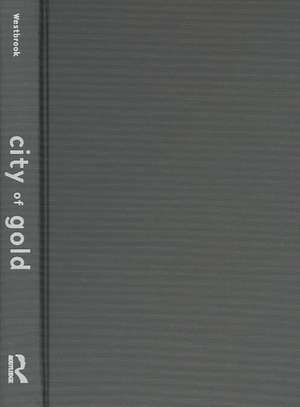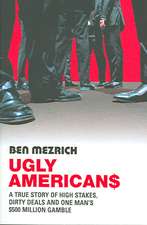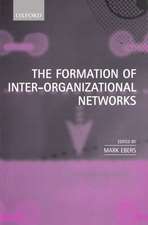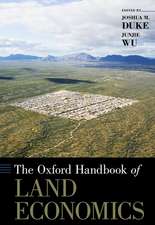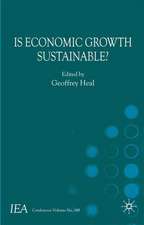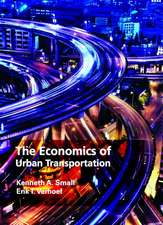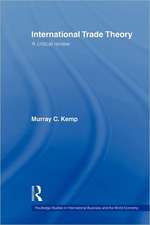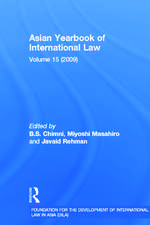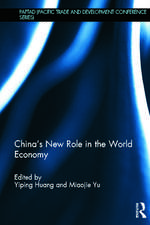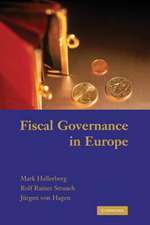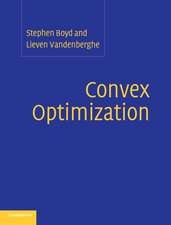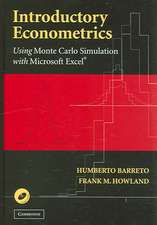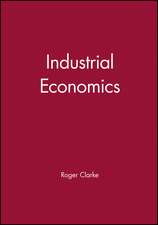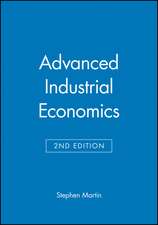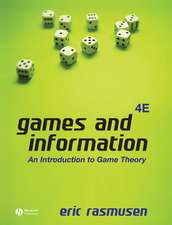City of Gold: An Apology for Global Capitalism in a Time of Discontent
Autor David A. Westbrooken Limba Engleză Hardback – 12 noi 2003
| Toate formatele și edițiile | Preț | Express |
|---|---|---|
| Paperback (1) | 445.36 lei 6-8 săpt. | |
| Taylor & Francis – 12 noi 2003 | 445.36 lei 6-8 săpt. | |
| Hardback (1) | 1231.21 lei 6-8 săpt. | |
| Taylor & Francis – 12 noi 2003 | 1231.21 lei 6-8 săpt. |
Preț: 1231.21 lei
Preț vechi: 1501.47 lei
-18% Nou
Puncte Express: 1847
Preț estimativ în valută:
235.58€ • 245.99$ • 194.54£
235.58€ • 245.99$ • 194.54£
Carte tipărită la comandă
Livrare economică 16-30 aprilie
Preluare comenzi: 021 569.72.76
Specificații
ISBN-13: 9780415945394
ISBN-10: 0415945399
Pagini: 400
Ilustrații: 5 color images
Dimensiuni: 152 x 229 x 24 mm
Greutate: 0.83 kg
Ediția:1
Editura: Taylor & Francis
Colecția Routledge
Locul publicării:Oxford, United Kingdom
ISBN-10: 0415945399
Pagini: 400
Ilustrații: 5 color images
Dimensiuni: 152 x 229 x 24 mm
Greutate: 0.83 kg
Ediția:1
Editura: Taylor & Francis
Colecția Routledge
Locul publicării:Oxford, United Kingdom
Notă biografică
David A. Westbrook is currently an associate professor of Law at the University of Buffalo, State University of New York, and is a former corporate lawyer.
Recenzii
"City of Gold is an extraordinarily bold effort to understand the economic, cultural, and political implications of globalization. Westbrook draws on his deep understanding of economics, critical theory, and the world of high finance to move beyond traditional academic boundaries and thereby rethink the rise of supranational capitalism. At the same time, he moves easily and gracefully through the realms of history, classical philosophy, psychology, and art criticism. This book will entrance its readers, not just for the sweep of its argument, or the eclectic nature of its insights, but for its sheer intellectual daring and brilliance." -- --Pierre Schlag, Byron White Professor of Law, University of Colorado
"City of Gold has been produced with a keen critical sensibility by an author who knows intimately the workaday and policy worlds of the law and corporations, but who is also steeped in the critical theories that have so informed cultural analysis of the past three decades. Among the several current ambitious efforts to come to terms with the changing nature of capitalism as a form of life--economic, cultural, and especially, as a system of politics and values--in the present "great transformation" in which we are all immersed, Westbrook's is the best that I know, for its passion, its readability, and the unique ways in which it is informed." -- --George Marcus, Professor and Chair of Anthropology, Rice University
"In City of Gold, one of our best young international law scholars grapples with the promise and perils of globalization. David Westbrook brings imagination, realism, and moral seriousness to a set of problems that for better or worse are transforming the way human beings live in every corner of the world." -- --Mary Ann Glendon, Learned Hand Professor of Law, Harvard University
"a powerful demonstration of the limits within which global ... organiz[es] economic interaction in our cosmopolitan society." -- Journal of World Trade
Human Rights
"Mentioned in the Michigan Law Review."
"City of Gold deserves to be taken seriously, read widely, and debated critically. Westbrook successfully bridges the fields of economics, international law, critical theory, and social change. He demonstrates an ability to combine critical reasoning with a concern about actual policy. In the process, he provides us with important insights about global capitalism."--International Studies Review (2006) 8, 107-108
"The whole book is a powerful demonstration of the limits within which global capitalism may be seen as an effective and efficent way of organizing economic interaction in our cosmopolitan society."--Journal of World Trade 39(1) 2005
"City of Gold has been produced with a keen critical sensibility by an author who knows intimately the workaday and policy worlds of the law and corporations, but who is also steeped in the critical theories that have so informed cultural analysis of the past three decades. Among the several current ambitious efforts to come to terms with the changing nature of capitalism as a form of life--economic, cultural, and especially, as a system of politics and values--in the present "great transformation" in which we are all immersed, Westbrook's is the best that I know, for its passion, its readability, and the unique ways in which it is informed." -- --George Marcus, Professor and Chair of Anthropology, Rice University
"In City of Gold, one of our best young international law scholars grapples with the promise and perils of globalization. David Westbrook brings imagination, realism, and moral seriousness to a set of problems that for better or worse are transforming the way human beings live in every corner of the world." -- --Mary Ann Glendon, Learned Hand Professor of Law, Harvard University
"a powerful demonstration of the limits within which global ... organiz[es] economic interaction in our cosmopolitan society." -- Journal of World Trade
Human Rights
"Mentioned in the Michigan Law Review."
"City of Gold deserves to be taken seriously, read widely, and debated critically. Westbrook successfully bridges the fields of economics, international law, critical theory, and social change. He demonstrates an ability to combine critical reasoning with a concern about actual policy. In the process, he provides us with important insights about global capitalism."--International Studies Review (2006) 8, 107-108
"The whole book is a powerful demonstration of the limits within which global capitalism may be seen as an effective and efficent way of organizing economic interaction in our cosmopolitan society."--Journal of World Trade 39(1) 2005
Cuprins
Acknowledgments Introduction Part One: Desire's Constitution I. Conception II. Money as Communication III. Finance and the War Against Time IV. Urban Renewal V. Governance Part Two: Constitutional Critique VI. Alienation VII. Inauthenticity VIII. Identity, Tense Part Three: Exhausted Philosophies IX. The Reformation of Economics X. After Economic Justice XI. The Disenchantment of Liberalism Part Four: Towards a Metropolitan Political Economy XII. True Markets XIII. Orderly Markets XIV. Beyond the Market: Authority and Identity Conclusion: The Possibility of Affection
